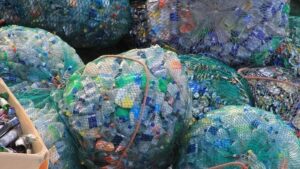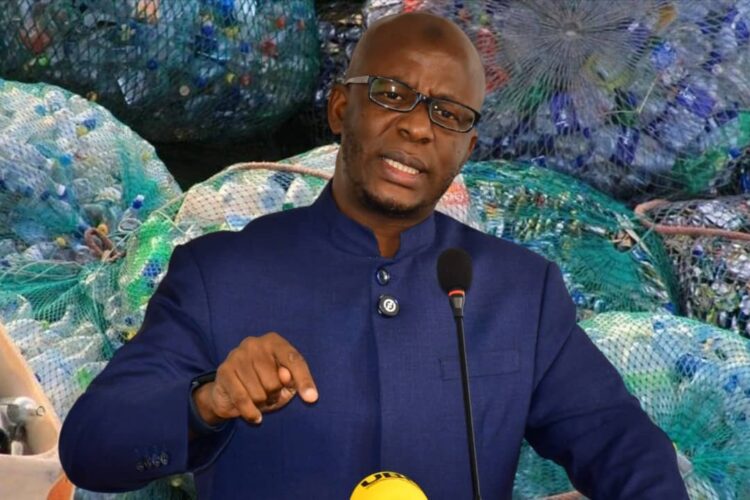By Leonard Kamugisha Akida,
KAMPALA
Mounds of plastic waste clogging city drainage channels and littering streets have become a daily sight across Kampala—an environmental crisis that the National Environment Management Authority (NEMA) says can no longer be ignored.
In response to the growing plastic pollution threat, NEMA is proposing a new amendment to the National Environment Act to enforce a total ban on single-use plastic carrier bags less than 30 microns in thickness.

Speaking at a press conference held Tuesday at the Uganda Media Centre, NEMA Executive Director Dr. Akankwatsa Barirega said the amendment is intended to tackle the country’s escalating waste management crisis.
“We are coming up with an amendment of the NEMA Act, Cap 181, to totally ban single-use plastics. We hope that the media, as our partners in creating awareness, will rally Ugandans to support this cause,” Barirega said.
Uganda generates an estimated 600 metric tonnes of plastic waste daily. Of this, only 40 percent is collected, while the rest remains in the environment—clogging drainage systems, polluting water bodies, and threatening wildlife and human health. Kampala alone contributes approximately 180 metric tonnes per day, making it the country’s top plastic polluter.
Globally, over 430 million tonnes of plastics are produced annually, with two-thirds used for short-lived products that quickly become waste. About 23 million tonnes of plastic end up in the environment—on land, in rivers, lakes, and oceans.

NEMA first proposed a ban on single-use plastic bags in 2019, but the initiative faced resistance from political and economic stakeholders. Industry players and some government actors opposed the move, citing concerns about job losses and reduced tax revenue.
This time, however, NEMA says it has strong backing from both the Cabinet and President Yoweri Museveni.
“Cabinet agreed to amend the law because enforcing the 30-micron threshold is nearly impossible. The human eye can’t tell the difference between 30, 40 or even 100 microns,” Barirega said.
He argued that the cost of inaction outweighs the perceived economic benefits. “If a company pays Shs1 billion in taxes but government spends Shs10 billion on unclogging drains, treating pollution-related illnesses, and managing flooding, who is benefiting?” he posed.
In addition to the legislative changes, NEMA is working with plastic manufacturers to establish the Extended Producer Responsibility scheme for Producer Recycling Organization (PRO). The initiative according to NEMA will require companies to collect and recycle used plastic bottles, reducing their environmental impact.

Barirega emphasized that this approach promotes circular economy practices and helps minimize plastic waste at the source.
A 2024 national survey revealed overwhelming public support for stronger action against plastic pollution, with 96 percent of respondents backing stricter laws on plastics, especially those that are hard to recycle.
Uganda will on June 5, join the rest of the countries to commemorate World Environment Day, 2025. National celebrations will take place in Kabale district, Kigezi region, with a number of activities such as Radio/TV talkshows, community sensitizations and school debates. Barirega said the day will highlight the dangers of plastic pollution and the need for urgent action.








































